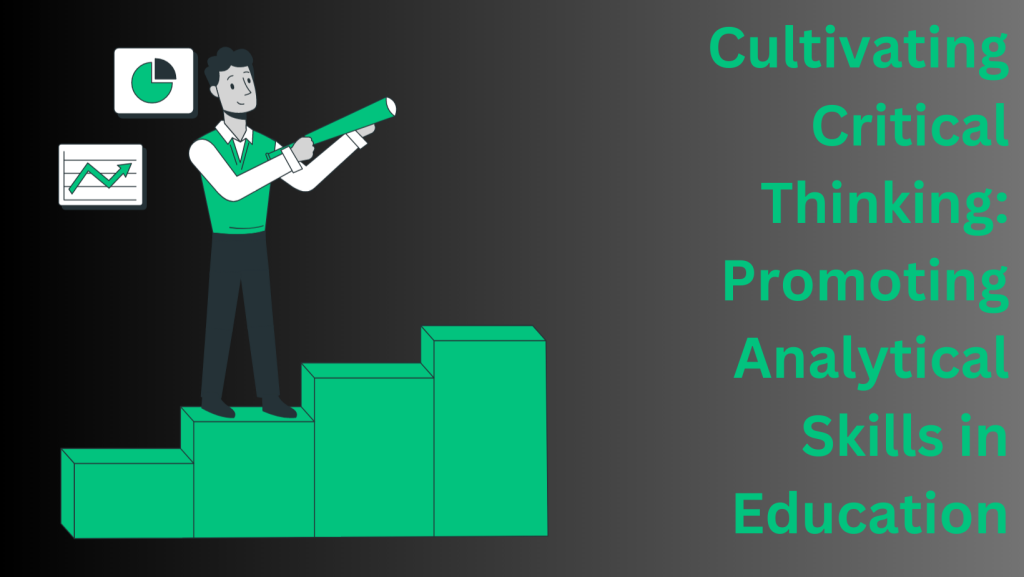Introduction:
In today’s rapidly evolving world, the ability to think critically and analyze information has become increasingly vital. Cultivating strong analytical skills is crucial for students to navigate complex challenges, make informed decisions, and excel in both academics and their future careers. In this blog, we will explore the significance of promoting critical thinking and analytical skills in education, and how these skills positively impact students’ cognitive development and problem-solving abilities.

Section 1: The Power of Critical Thinking
In a world inundated with information, having strong critical thinking skills is paramount. Developing these skills enables individuals to evaluate, interpret, and make sense of the vast amount of data they encounter. The importance of critical thinking in education cannot be overstated, as it equips students with the tools needed to analyze complex issues and arrive at well-reasoned conclusions.
Section 2: Promoting Analytical Skills in Education
Educators play a pivotal role in fostering analytical skills among students. By integrating critical thinking into the curriculum, educators can provide opportunities for students to develop their analytical reasoning abilities. Through inquiry-based learning, problem-solving activities, and open-ended discussions, students can enhance their analytical skills and become active participants in their own learning.
Section 3: Enhancing Cognitive Development
Cultivating critical thinking skills positively impacts students’ cognitive development. When students engage in analytical thinking, they are required to apply logic, reason, and evidence to their thought processes. This promotes higher-order thinking skills, such as analysis, synthesis, and evaluation, which are essential for comprehending complex concepts and solving multifaceted problems.
Section 4: Practical Applications of Critical Thinking
Critical thinking is not limited to the confines of the classroom; its applications extend far beyond. By equipping students with analytical skills, educators empower them to become effective problem-solvers and decision-makers in real-world situations. Whether it’s assessing the credibility of information sources, evaluating different perspectives, or making informed choices, critical thinking plays a crucial role.
Section 5: Promoting Critical Thinking Across Disciplines
Critical thinking should be nurtured across all disciplines to maximize its impact. From STEM subjects to humanities and arts, every field offers opportunities for students to develop their analytical skills. By incorporating critical thinking activities, projects, and assessments tailored to specific disciplines, educators can create an environment that encourages students to think critically in diverse contexts.

Section 6: The Role of Technology in Developing Analytical Skills
In the digital age, technology can be a powerful tool for enhancing analytical skills. Educational technology resources and platforms provide interactive learning experiences, virtual simulations, and data analysis tools that promote critical thinking. Educators can leverage these resources to engage students, foster analytical reasoning, and prepare them for the technological demands of the future.
Conclusion:
Promoting critical thinking and analytical skills in education is essential for preparing students for the complexities of the modern world. By prioritizing these skills, educators nurture cognitive development, enhance problem-solving abilities, and empower students to become lifelong learners. Through intentional integration of critical thinking across disciplines and leveraging technology, we can equip students with the analytical skills needed to thrive in an ever-evolving society. By cultivating critical thinkers, we lay the foundation for a future generation capable of making informed decisions, solving complex problems, and driving positive change.



Comments 0